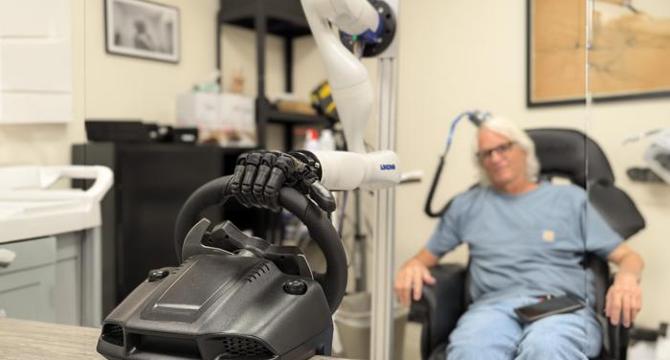Bioengineer
1w
221

Image Credit: Bioengineer
Enhanced Brain-Computer Interface Elevates Realism in Prosthetic Limb Sensation
- Researchers led by Charles Greenspon at the University of Chicago have developed brain-computer interfaces (BCIs) that can replicate the complex sensations of touch.
- These devices utilize direct electrical stimulation of the brain to create the experience of pressure, texture, and motion in a prosthetic limb.
- The technology centers on implanting tiny electrode arrays in the brain to corresponding regions of tactile perception.
- By stimulating individual electrodes, researchers create maps of the brain that correlate with specific sensations in the limb.
- This can help users detect fine textures and pressure when gripping objects.
- Researchers have also discovered a method of activating multiple electrodes to mimic motion, such as the gliding of a surface across the skin.
- These advancements aim to enhance the granularity of touch perception across a wider area of the hand.
- Future applications promise immediate benefits to individuals with limb amputations or other sensory impairments.
- Researchers are also considering the broader relevance of their findings, such as developing implants to restore touch sensation post-mastectomy.
- These innovations have the potential to transform the fabric of interactions for individuals challenged by limb loss or sensory dysfunction.
Read Full Article
13 Likes
For uninterrupted reading, download the app